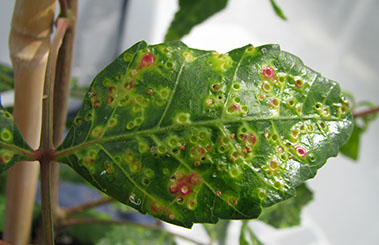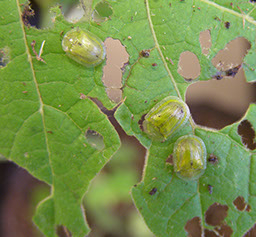DEPARTMENT OF
ENTOMOLOGY



Biological Control
Biological control is the use of natural enemies including predators, parasitoids, weed feeders and entomopathogens for the reduction of pest densities. This course will focus on the concepts of biological control of insects, mites and weeds in natural and managed ecosystems. The student will learn about the history of biological control including critical pest management programs that provided the foundation of the discipline. The biology and diversity of natural enemies will be presented. The course will cover the implementation of biological control including the importation of natural enemies or classical biological control, the deliberate increase of natural enemies or augmentation biological control, and the preservation and enhancement of resources to favor natural enemies or conservation biological control. In addition, the students will learn about techniques to monitor and evaluate natural enemies, federal regulations and the importance of educating the stakeholders about biological control. Having a solid understanding of biological control will help students in the development of effective pest management programs.
The course will consist of two 1-hour lectures and one 2-hour laboratory or discussion per week. Lectures will provide the foundational concepts on each topic outlined in the course schedule below. Laboratories will consist on practical exercises relevant to the subject of each week. Discussions will be summaries of review papers about biological control and will be led by students. There will be three assignments and a final term-paper.
Target Audience: Graduate students in the Department of Entomology, School of Plant, Environmental, and Soil Sciences and the School of Renewable Natural Resources
Please see the syllabus for more details.
